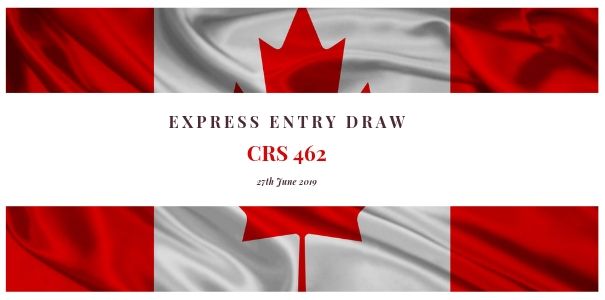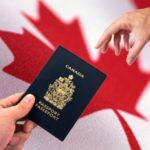
The cut score decreases by three points in the Express Entry draw
The Government of Canada has invited 3,350 express entry candidates to apply for permanent residence in Canada at a new June 26 draw.
The cutoff score for today's draw was 462, three points lower than the previous draw on June 12th.
This was the second consecutive draw after the cut in the limit since May 29, when it reached 470.
The Express Entry system is the main source of skilled foreign labor in Canada. It manages the pool of candidates for three of the major categories of Canadian economic class: the Federal Skilled Worker Class, the Federal Skilled Trades Category, and the Canadian Experience Class.
Eligible candidates in these categories are entered into the Express Entry group where they are ranked according to their scores in the Global Ranking System (CRS).
The CRS score of a candidate is based on factors such as age, education, qualified work experience and proficiency in English or French, among others.
An offer of employment is not required to be eligible for the Express Entry pool.
Top-ranked applicants receive invitations to apply for permanent residence in Canada, known as ITA, through regular draws, usually every two weeks.
The lowest lower thresholds of the last two Express Entry draws can be attributed to the fact that Immigration, Refugees and Citizenship Canada (IRCC) returned to this two-week period between draws.
The higher limit than usual in the May 29 draw reflects the fact that almost a month elapsed between draws involving the three major immigration programs managed by Express Entry.
When more time elapses between draws, the Express Entry group has more time to re-establish with the highest scoring candidates, which can increase the scoring score.
The deciding game used by IRCC in the June 26 draw was May 11, 2019 at 5:40 pm: 54 UTC.
This means that all candidates with a CRS score greater than 462, as well as those with a score of 462 who entered their profile in the Express Entry group before that date and time, received an ITA.
The draw brings to 41,800 the number of invitations issued in 2019.
This brings the 2,100 ITAs of the current year to those of IRCC in 2018.
Last year, IRCC published a record 89,800 ITA, a figure it could surpass this year in view of Canada's higher admission targets for 2019 and 2020 for its three main programs managed by Express Entry.
Here are hypothetical examples of candidates who would have won an ITA in the June 26 draw:
Mohit is 32 years old, a master's degree and has been working as an accountant for three years. He wrote the IELTS and got an 8 in each category. Although Mohit never worked or studied in Canada, his CRS score of 462 would have been high enough to qualify for an ITA in today's draw.
Shruti is 31 years old, has two bachelor's degrees and has been working as a management consultant for three years. Shruti is married to Ram, who is 37 years old and holds a bachelor's degree. Shruti and Ram wrote the IELTS and got an 8 in each category. Neither Shruti nor Ram have ever worked or studied in Canada. They entered the pool with Shruti as lead applicant. Their CRS score of 462 would have been high enough to earn an ITA at the June 26 Express Entry draw.
"This is the second draw following the decrease in the number of CRSs thanks to the return of IRCC at a two-week interval," said David Cohen, Senior Partner of the Canadian law firm Campbell, Cohen, in Montreal. .
"If this interval continues or even accelerates, or if we start seeing larger draws, this could lead to further reduction in the SIR cutoff."
Reference from CICNEWS
Get A Free Quote / Need a Help ?
Contact Us





